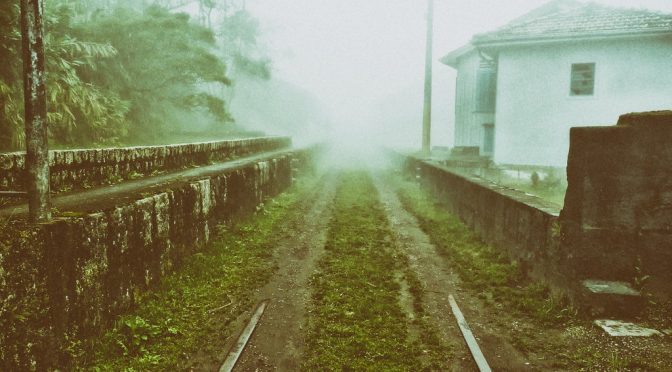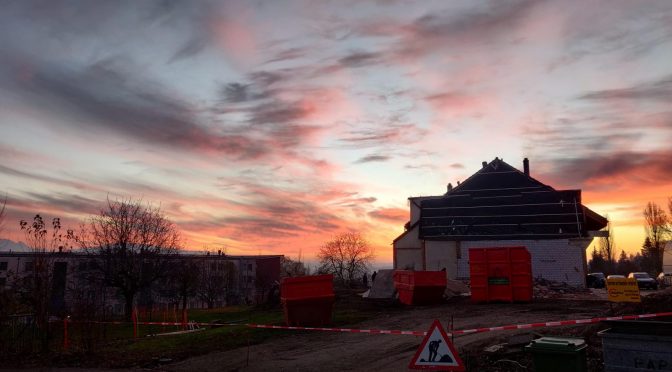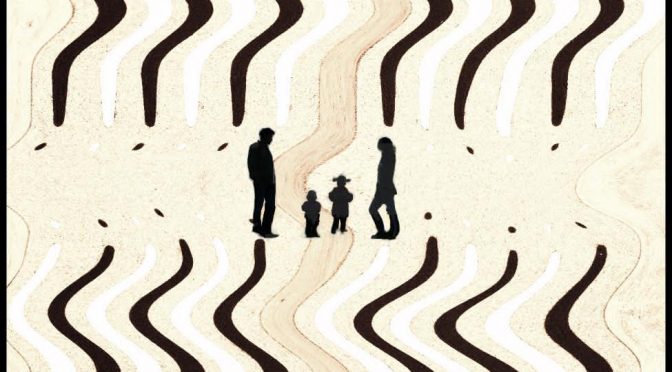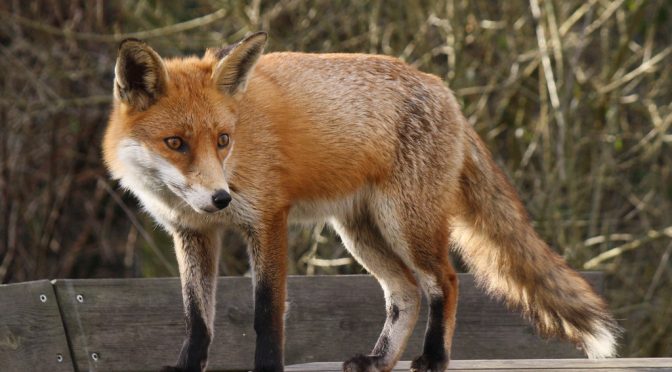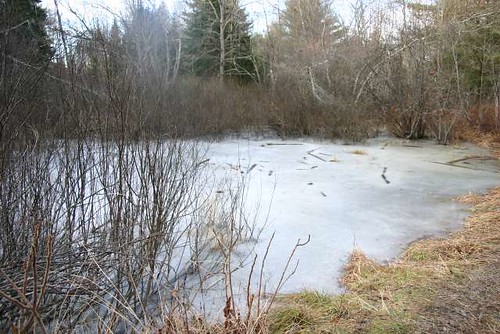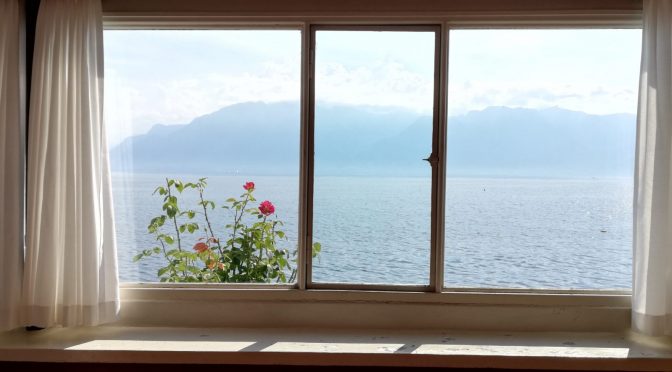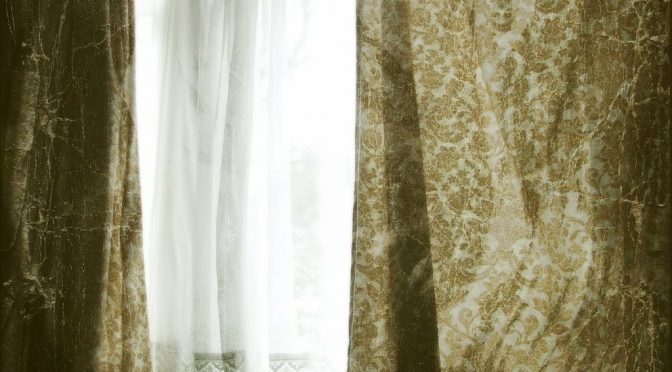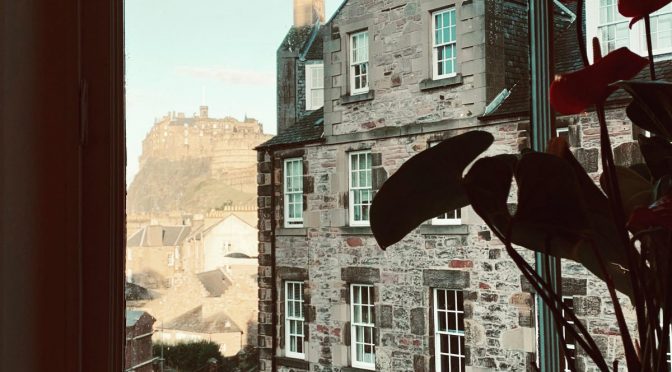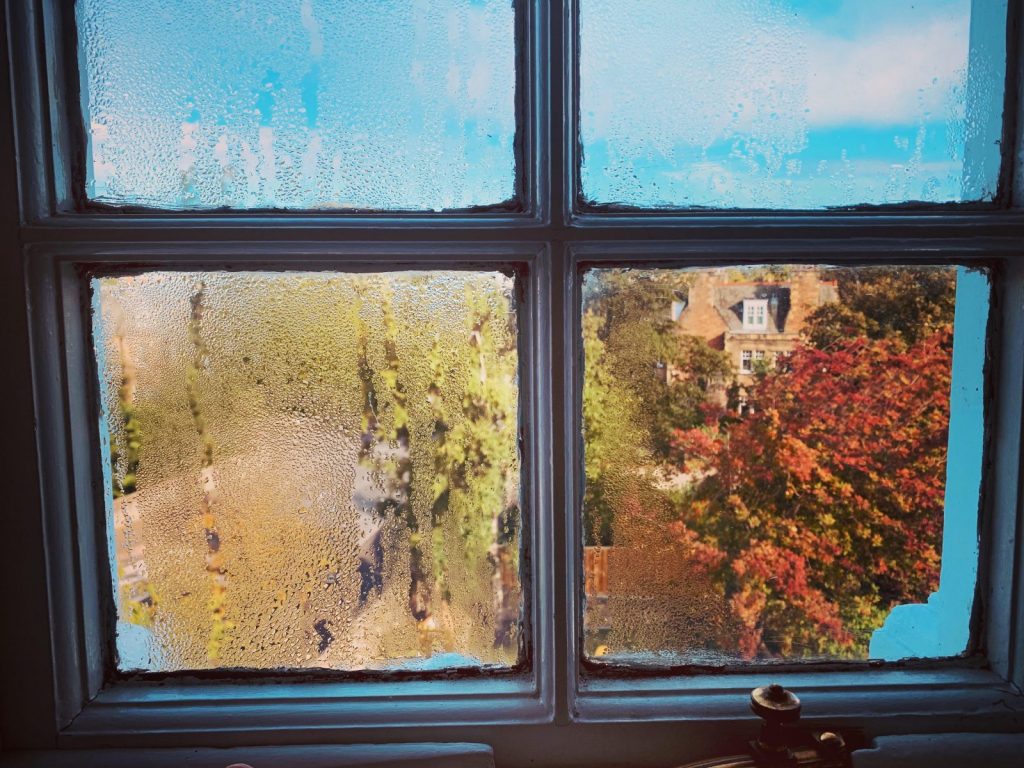Once upon a time, in a far-off country, lived a boy whom all called “Little Goose”. He went by no other name. What name his father might have given him was better forgotten. All the drunkard had left were a few dirty smokes and trails of boozy urine in a corner of the barn. What name his mother might have given him when tucking his blanket, none could say. Perhaps she had not even named the little form before leaving it wrapped up on the steps. What mother would want to name that which is to be abandoned? The villagers had opted for neither naming nor flouting. He was “little goose” and that was that.
The children would giggle and hoot as he passed by: “here comes Little Goose! What bird have you caught today? Oh, let’s chase the bird. Come on!” Down they would swoop, tearing at the ground with their claws, their bony limbs knocking the boy on the head, the shoulders, the knees. Sometimes they would thrust water on him, the dirty water from the barrel at back of their house. Once he had tried to fight back, but they were more numerous, taller and stronger. He ran and ran until he found Old Mam’s front door open. She had stood there, a large wooden spoon on the hip, her apron as imposing as armour. Oh, she was a woman all right, Old Mam! – White mane trailing down her back, bushy brows covering the storm beneath. Her glare fustigated the assailants: “well well, who comes here?” A scruffy-hefty-croaky voice she had Old Mam. It was unusually low and one had to strain to distinguish all words. But it was mighty. The children left Little Goose alone that day.
But Old Mam expired in the spring. Wildflowers have grown her a garden, an unkempt vivid thing blooming in a discarded patch of earth, forgotten. Her voice is reduced to a whisper, a variation of the breeze. The little boy does not run away from the children anymore; there is nowhere to go. He sleeps in Old Joe’s barn in summer, looking over the animals. In winter, his little head rests beside the tavern’s hearth while men laugh and cry their lives out, flushing its disagreements in strong-smelling ale.
There is no one to care for him. Some would have, of course, had Little Goose not been so strange. “Oh, I would have brought him up, as one of my children I would have, yes ma’am! But when I hear he spends his days out there, you know – there. I’m no superstitious one, but when a little boy prefers spending his days doing, well, doing you-know-what, then I better leave him alone. He can have a piece of bread but I don’t want to find him no more in my house. No ma’am.”
And so they talk, listing you-know-whats that will not be named. They seem to understand each other quite well as others nod and hum in pensive accord. The boy is strange. No one, of course, is superstitious in the village. But one cannot be too sure either…
So the boy is alone still.
Down to the river he goes. He does not stop beside the colourful sheets hanged out to dry waving like butterflies in the wind, will not listen to the chatter of women as they wash their troubles with sweet-smelling soap. He does not stop beside the rocky rings framing pools of turquoise in which children laugh and lovers lie beneath the sky. Neither does wish to see what men are up to at the mill, blades cutting the water’s course. No, he prefers to be alone. Little Goose takes the little path that winds through the woods, twisting, turning and forking until winding beside the bend. At the end of the path, two trees mark an entrance. These old, majestic beings extend their arms and cover the sky. They seem to have reigned over the forest since ages long gone and forgotten. At their feet is a slate of cracked stone … But the little boy cannot read.
The place is different, apart from all others. It is his own.
And what beauty lies in the forest hall! Birds swoop down, wide wings the shape of an angel’s. They soar in the air, rise and fall, swoop and turn, all in silent symphony. As they fly in the morning, water showers from their wings, feathers relinquishing delicate drops of dew. So the grass will sparkle in the rising dawn, the green shattering into a myriad of golden lights. Mists float about, catching the flames in their silken veils to form a canvas of the air. And through the brilliant tapestries, the birds will fly, black against the gold, blacker than ebony. Black as death they circle the hall, endlessly.
The boy would watch, open-eyed, golden specks swimming in the white and greens of his eyes. Every morning, he would go up to the forest and watch as the swans swooped beneath arched vaults, as ethereal light filtered through branched tracery. When the birds departed through endless corridors, Little Goose would not follow them. Arms extended, feet hovering for instants above the ground, he would saunter down the little path, across the wobbly wooden bridge and back to the village, crying the birds’ songs as he went.
“Here comes Little Goose. What an odd boy”, they would say. And an old man would mutter words in his beard. It was a strange sight indeed to see the black strands of hair bob up and down the path and to hear his cries. Children would run away. “Mommy, it sounds like geese dying! I’m scared, Mommy”. And indeed, the cries that he thought so wonderful scraped the surface of the air and shattered the order of things. Death seemed to enter the fragile mirror of life.
But Little Goose did not notice these things. He would cross the fields. He would not pick any flowers, as others did. He would not contemplate the doves either. He had no interest in such birds. Once, Lily had said they looked like petals of snow scattered about. Little Goose had never seen snow, but it seemed to him that snow came in flakes. He mentioned that. He also mentioned that the doves were ugly. That he knew a place where the birds were graceful and strong. A place where birds were black. Lily had left and cried. He had simply shrugged. The doves to him were not birds, not really.
Then, having crossed the fields, down to the river’s edge he would run again, to a little spot behind the lovers’ pools. There, the stones were wide and smooth, the water crystal-clear. Alone, beside the river, none could bother him. “I am on the surface of the moon”, he would whisper, “I am bringing the most beautiful birds to the surface of the moon”. And he would set to work.
The strongest and smoothest of discarded branches he would select, the softest of reeds too. And with the feathers he would make brushes. This took quite a time. The boys would have mocked the way his tongue stuck out. But they were not here. And in the smooth landscape he would shape a world. The brush would dip in the little pool, creating a myriad of rings. As he walked across the surface of the stones, trails of pearls would shimmer and life, beneath the discarded birds’ feathers, would emerge. Swooping forms, ephemeral strokes of water, would emerge on the smooth surfaces. To the boy, it did not seem that he was creating them, only that he called their presence to him. Then he would sit on the stones and talk to them, these birds of water. They would tell each other the most wonderful stories. Then, before the moon came out, Little Goose would make his way back to the tavern, always. Looming stacks of dirty dishes would await. But his dreams helped wash the grime away. He would eat the bread left out for him. Always stale. Then he would tuck himself beside the ashes of the chimney place, the jibes too far away to harm.
“Looks like he’ll turn into one of these birds”
“You think so?”
“Gosh, I know so. Look at him!
“All these feathers of ash”
“How he cries when he comes down”
“You think he has seen them?”
“Oh, well, perhaps from far –“
“No no, he definitely has”
“Oh, he will bring something dark to this village. Just you wait and see!”
And they would shudder. And they would cry out for more ale as one needed comfort in such company. All wondered why the boy was allowed to stay. Perhaps because the keeper’s wife did not have any children. Perhaps because the dishes needed washing. Anyway, nobody asked. He stayed.
And, suddenly, just as they had predicted, trouble came. It took the form of winter, a dark, shadowy winter where mist blurs the boundaries between nightmare and reality. It did not snow. But frost settled in. The grasses shivered and died in it, the waters froze. Doors shut one by one. Geese squawked and cried until all were slain for meat. A few dogs whimpered and howled but even they ceased after a while. All was quiet. All was dead.
Only Little Goose stepped past the door. He took a worn blanket that he tied all around, and sauntered out. Eyes watched the colourful shape bob down the hill to the river, cross its frozen surface and disappear into the woods.
“That boy! He’s up to no good.”
Into the woods he went, but his strides gradually became shorter, slower. It was not due to lack of food, although the latter had been increasingly scarce. It was to do with the stillness of the place, a stillness that did not bear peace but an ominous, dangerous secret that could not be uttered. There was no breeze. The trees loomed, stone pillars rather than wooden flesh. At last he arrived at the two ancient trees guarding the entry to his secret place.
A while later, the same peering eyes watched a lost little form tread back from the river, up the path, and open the door of the tavern. The eyes left their windows, and mouths opened. Noise broke out behind closed doors, their energy only feeding the frost. He was met by a slap on one cheek and slurs on the other. He simply blinked as anger toppled over his little form. He seemed to see them for the first time, these people, these neighbours he had never really met.
“Where have you been, you little prick?”
“Don’t you know there are evil spirits out there?”
“Don’t you open that door again until I say so!”
They took him up to the attic. They locked the trapdoor and took away the ladder.
Then they forgot about him.
Later, when the frost had left and flowers bloomed, they would remember that a little boy had been locked up there. They would take some food upstairs.
“He isn’t there!”
“My spirits! No, he isn’t”
“What do you mean he isn’t there?”
“Well, look for yourself! What do you see? Not a boy for what I know.”
“Oh gee, you are right. He isn’t there!”
They went on for a while in this manner until someone observed that a boy could not disappear. They searched every corner. They noticed that the window was tightly shut. They saw that he could not have escaped. They did not understand.
A young girl came up. Her name was Lily. She plucked a few feathers from the ground. They were long and white, graceful. She had never touched something so soft. They smelled of warm earth and cinnamon, of life. She closed her eyes and basked in the smell. As she opened them, they rested upon an image. It was a bird. The most beautiful of birds. As she bent closer, leaning towards the ground, her breath blew the ashes away. They scattered in the dawning light, shimmered for a brief instant, and were lost.
“Goodbye Little Goose”, she whispered.
She kept the feathers.
Years later, as she would tell the story, she would always end it this way: “We called him Little Goose. We were wrong, you see. It was not truly his name. He was a bird, a beautiful bird – Swan Boy. You might still see him up there, above the branches of a tree, soaring beneath the moon. He might listen if you call. He might even like to hear this story; if you tell it right.”

